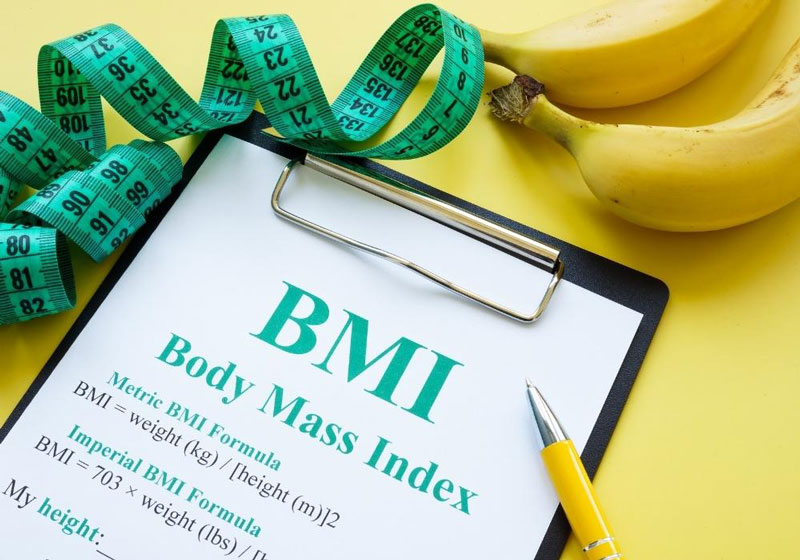In today's society, health and fitness have become increasingly important. People are more aware than ever before of the significance of maintaining a healthy lifestyle. One crucial aspect of assessing health is understanding the importance of Body Mass Index (BMI). BMI is a valuable tool that provides insights into an individual's weight status and potential health risks. This article aims to delve into the significance of BMI, its calculation, understanding BMI categories, and why it matters for overall health.
What is BMI?
Body Mass Index, commonly referred to as BMI, is a measurement used to assess an individual's weight status relative to their height. It provides a numerical value that indicates whether a person is underweight, normal weight, overweight, or obese. BMI is a simple yet effective screening tool widely used in healthcare settings and by individuals who want to monitor their weight and overall health.
How is BMI Calculated?
BMI is calculated by dividing an individual's weight (in kilograms) by the square of their height (in meters). The formula for calculating BMI is as follows:
BMI = weight (kg) / (height (m))^2
This calculation results in a numerical value that corresponds to a specific BMI category, helping individuals and healthcare professionals evaluate weight status accurately.
Understanding BMI Categories
BMI categories provide a standardized framework for assessing weight status. The following categories are commonly used:
- Underweight: BMI less than 18.5
- Normal weight: BMI between 18.5 and 24.9
- Overweight: BMI between 25 and 29.9
- Obese: BMI 30 or higher
It's important to note that while BMI is a useful screening tool, it does not take into account factors such as muscle mass and distribution of fat, which can vary among individuals.
Why is BMI Important?
BMI holds significant importance in understanding an individual's weight status and its implications for overall health. It provides a starting point for evaluating potential health risks associated with weight.
Health Risks Associated with High BMI
Individuals with a high BMI are at an increased risk of developing various health conditions, including:
- Cardiovascular Diseases High BMI is closely linked to an increased risk of heart diseases, such as coronary artery disease, high blood pressure, and stroke. Excess weight puts additional strain on the heart and blood vessels, leading to these potentially life-threatening conditions.
- Type 2 Diabetes Obesity and high BMI are strong risk factors for developing type 2 diabetes. The body's reduced ability to efficiently use insulin leads to high blood sugar levels, eventually resulting in diabetes.
- Joint Problems Carrying excess weight puts additional stress on joints, leading to conditions such as osteoarthritis. Excess weight can accelerate joint degeneration and cause chronic pain and reduced mobility.
- Respiratory Issues Obesity can contribute to respiratory problems such as asthma, sleep apnea, and reduced lung function. The excess weight can restrict the airways and affect normal breathing patterns.
Health Risks Associated with Low BMI
While high BMI poses health risks, having a low BMI can also have adverse effects on an individual's health:
- Nutritional Deficiencies Low BMI may indicate insufficient nutritional intake, leading to deficiencies in essential vitamins, minerals, and macronutrients. This can weaken the immune system and increase the risk of infections and other health complications.
- Decreased Bone Density Low BMI is associated with reduced bone mineral density, increasing the risk of fractures and osteoporosis. Inadequate nutrient intake and hormonal imbalances contribute to this risk.
- Fertility Issues Low BMI in women can disrupt hormonal balance, leading to menstrual irregularities and difficulties in conceiving. It may also increase the risk of complications during pregnancy.
- Weakened Muscle Mass and Low BMI may indicate muscle wasting and reduced muscle strength. Lack of physical activity and inadequate protein intake contributes to the loss of muscle mass, affecting overall strength and functionality.
BMI and Overall Health
Maintaining a healthy BMI is crucial for overall health and well-being. It is an indicator of an individual's weight status and can help identify potential health risks. While BMI is not a comprehensive assessment of health, it serves as an initial screening tool that can guide individuals toward adopting healthier habits and seeking further medical advice if necessary.
BMI and Chronic Conditions
BMI is closely linked to chronic conditions that can impact an individual's quality of life. Conditions such as heart disease, diabetes, and certain cancers are more prevalent among individuals with a high BMI. By monitoring BMI and maintaining a healthy weight, individuals can reduce the risk of developing these chronic conditions.
BMI and Fitness Goals
For individuals with specific fitness goals, BMI can provide a baseline measurement to track progress. Whether the goal is to lose weight, gain muscle, or improve overall fitness, monitoring BMI along with other metrics can help individuals stay on track and make informed decisions about their exercise and nutrition plans.
How to Maintain a Healthy BMI
Maintaining a healthy BMI involves a combination of balanced nutrition and regular physical activity. Here are some tips to help maintain a healthy weight:
- Balanced Diet Consume a well-rounded diet consisting of fruits, vegetables, whole grains, lean proteins, and healthy fats. Avoid excessive consumption of processed foods, sugary beverages, and foods high in saturated fats.
- Portion Control Be mindful of portion sizes and avoid overeating. Pay attention to hunger and satiety cues and aim for balanced meals that provide essential nutrients without excessive calorie intake.
- Regular Exercise Engage in regular physical activity to support weight management and overall health. Incorporate a mix of cardiovascular exercises, strength training, and flexibility exercises to maintain muscle mass and burn calories.
- Healthy Lifestyle Habits Prioritize quality sleep, manage stress levels, and avoid tobacco and excessive alcohol consumption. These lifestyle factors play a vital role in maintaining a healthy weight and overall well-being.
Misconceptions about BMI
It's important to address some common misconceptions about BMI to provide a clear understanding:
- BMI does not differentiate between fat and muscle BMI solely considers weight and height and does not account for muscle mass. Individuals with high muscle mass may have a higher BMI but can still be physically fit and healthy.
- BMI is not a diagnostic tool While BMI is a useful screening tool, it does not provide a comprehensive diagnosis of specific health conditions. It serves as an initial assessment and should be complemented with further medical evaluation if necessary.
Other Methods to Assess Body Composition
While BMI is widely used, there are other methods to assess body composition that provide additional insights:
- Body Fat Percentage Measuring body fat percentage using methods like dual-energy X-ray absorptiometry (DXA), bioelectrical impedance analysis (BIA), or skinfold calipers provides a more accurate assessment of body composition.
- Waist Circumference Measuring waist circumference helps determine the distribution of fat around the abdomen, which is associated with an increased risk of certain health conditions.
BMI and Weight Loss
For individuals looking to lose weight, BMI can serve as a starting point to set realistic goals. Combining a healthy diet, regular exercise, and monitoring BMI can help individuals track their progress and make necessary adjustments to achieve their desired weight.
Conclusion
BMI plays a significant role in assessing an individual's weight status and potential health risks. It serves as a valuable tool to guide individuals toward maintaining a healthy lifestyle, managing chronic conditions, and achieving specific fitness goals. While BMI has its limitations, it remains a widely recognized and accessible measurement that can initiate positive changes in personal health. Understanding the importance of BMI empowers individuals to make informed decisions about their well-being and take necessary steps toward a healthier future.
FAQs
Q1. Is BMI the only factor to consider for assessing health?
No, BMI is one of the factors to consider, but it should be supplemented with other assessments, such as body fat percentage and waist circumference, for a comprehensive evaluation of health.
Q2. Can BMI be used for everyone, regardless of age and gender?
BMI can be used as a screening tool for adults but may not be applicable to growing children and pregnant women. Specific guidelines and adjustments are needed for these populations.
Q3. What should I do if my BMI indicates a high or low weight status?
If your BMI indicates a high or low weight status, it is advisable to consult a healthcare professional who can provide personalized guidance based on your individual circumstances.
Q4. Can BMI be influenced by factors other than weight and height?
BMI is primarily influenced by weight and height, but factors such as muscle mass, bone density, and body composition can also impact the interpretation of BMI.
Q5. Can BMI accurately assess the health of athletes or individuals with high muscle mass?
BMI may not accurately assess the health of individuals with high muscle mass since muscle weighs more than fat. For athletes and individuals with high muscle mass, additional assessments such as body fat percentage are recommended.














